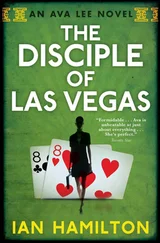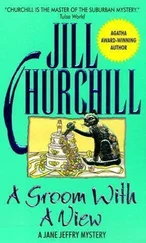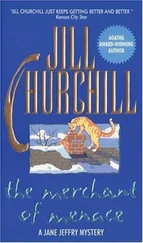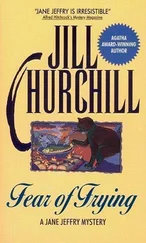Winston Churchill - Ian Hamilton's March
Здесь есть возможность читать онлайн «Winston Churchill - Ian Hamilton's March» весь текст электронной книги совершенно бесплатно (целиком полную версию без сокращений). В некоторых случаях можно слушать аудио, скачать через торрент в формате fb2 и присутствует краткое содержание. Год выпуска: 2018, Издательство: epubBooks Classics, Жанр: История, Прочая документальная литература, на английском языке. Описание произведения, (предисловие) а так же отзывы посетителей доступны на портале библиотеки ЛибКат.
- Название:Ian Hamilton's March
- Автор:
- Издательство:epubBooks Classics
- Жанр:
- Год:2018
- ISBN:нет данных
- Рейтинг книги:4 / 5. Голосов: 1
-
Избранное:Добавить в избранное
- Отзывы:
-
Ваша оценка:
- 80
- 1
- 2
- 3
- 4
- 5
Ian Hamilton's March: краткое содержание, описание и аннотация
Предлагаем к чтению аннотацию, описание, краткое содержание или предисловие (зависит от того, что написал сам автор книги «Ian Hamilton's March»). Если вы не нашли необходимую информацию о книге — напишите в комментариях, мы постараемся отыскать её.
London to Ladysmith
Ian Hamilton's March — читать онлайн бесплатно полную книгу (весь текст) целиком
Ниже представлен текст книги, разбитый по страницам. Система сохранения места последней прочитанной страницы, позволяет с удобством читать онлайн бесплатно книгу «Ian Hamilton's March», без необходимости каждый раз заново искать на чём Вы остановились. Поставьте закладку, и сможете в любой момент перейти на страницу, на которой закончили чтение.
Интервал:
Закладка:
Hamilton rejoined his men just as the Boers attacked at all points. The little picket of Highlanders, utterly unable to withstand the weight of the enemy's advance, ran back to the rim of the saucer intermingled with the Boers, who fired their rifles furiously at them, even putting the muzzles to the men's heads and so destroying them. In Sir William Butler's book, written almost entirely with the view of exonerating Sir George Colley, it is suggested that his advanced picket fell back in a panic. The truth is that they were swept backward by overwhelming force after they had three times reported to the General the development of a heavy attack. Of the seventeen men under Ian Hamilton in this advanced position twelve were shot dead.
The survivors of the picket with the pursuing Boers reached the rim together, and became visible to the main force. Astounded by this apparition, the troops who were lying down in the saucer rose up together, and, some accoutred, some with their coats off, Highlanders, sailors, and linesmen, ran forward and fired a ragged volley. The Boers immediately lay down and replied, causing heavy loss. A furious musketry fight followed between the Dutch in cover along the rim and the British among the rocks across the centre of the saucer. This was ended by the appearance of other Boers on the high ground at the northern end of the plateau. Without orders or order, exposed to a terrible fire, ignorant of what was required of them, the soldiers wavered. One last chance presented itself. Hamilton rushed up to the General in the impetuosity of youth: 'I hope you'll forgive my presumption, sir, but will you let the Gordon Highlanders charge with the bayonet?'
'No presumption, young gentleman,' replied Colley, with freezing calmness. 'We'll let them charge us, and then we'll give them a volley and a charge.'
On the word the whole scene broke into splinters. The British troops abandoned their positions and fled from the ground. The Boers, standing up along the rim, shot them down mercilessly—sporting rifles, crack shots, eighty yards' range. Hamilton saw a figure scarcely ten yards away aiming at him, raised the rifle he found himself somehow possessed of to reply. Both fired simultaneously. The British officer went down with his wrist smashed to pieces. He rose again: the rear crest was near. The last of the fugitives were streaming over it. One dash for liberty! The fire was murderous. Before the distance was covered his tunic was cut by one bullet, his knee by another, and finally a splinter of rock striking him behind the head brought him down half stunned to the ground—luckily behind the shelter of a small rock.
The firing stopped. The Boers began to occupy the position. Two discovered the wounded man. The younger, being much excited, would have shot him. The elder restrained him. 'Are you officer, you damned Englishman?' said they.
'Yes.'
'Give your sword.'
Now Hamilton's sword had belonged to his father before him. He replied by offering them money instead.
'Money!' they cried; 'give it up at once,' and were about to snatch it away when a person of authority—it is said Joubert himself—arrived. 'Voorwarts,' he said to the burghers, and in spite of their desire to plunder he drove them on. Hamilton thanked him. 'This is a bad day for us.'
'What can you expect,' was the answer characteristic of the Boer—the privileged of God—'from fighting on a Sunday?'
Then they collected the prisoners and helped Hamilton to walk back to the British position. Colley lay dead on the ground. The Boers would not believe it was the General. 'Englishmen are such liars.' Hector Macdonald—grim and sad—hero of the Afghan war, now a prisoner in the enemy's hand, watched the proceedings sullenly. The Boers picked out the surrendered prisoners. They looked at Hamilton. He was covered with blood from head to foot They said: 'You will probably die. You may go.' So he went; staggered, and crawled back to camp, arrived there delirious the next morning. The wrist joint is composed of eight separate bones. The bullet, breaking through, had disarranged them sadly, had even carried one or two away. If he had consented to amputation he would soon have been convalescent. But a soldier must preserve all he can. What with fever and shock he nearly died. For six months he was an invalid. But the hand was saved, so that now the General can hold an envelope between his paralysed and withered fingers, and sometimes hold a cigarette. For all other purposes it is useless, and when he rides it flaps about helplessly—a glorious deformity.
After some months of doubt as to whether he should leave the army and throw himself entirely into the literary pursuits which had always possessed for him a keen attraction, Hamilton decided to remain a soldier.
He next saw service in the Soudan: he was not intended to make this campaign, for the battalion to which he belonged was serving in India, and there has always been much jealousy between the Indian and the Egyptian British officer. But he happened to be coming home on leave, and when the steamer reached Suez it occurred to him to ask himself why he should not go up the Nile with the columns which were being formed. He got out of the ship accordingly and ran across the sands to the train which was standing in the station. Had he not caught it he would have returned to the ship. But he was in time. Next day he arrived in Cairo, and while waiting there for his luggage he applied for employment. It was refused, officers were not allowed to volunteer. The Gordon Highlanders, his only hope, had their full complement of officers. They had no vacancy for him. Hamilton did not, however, give up his idea easily. He resolved to travel as far as Wady Halfa and renew his application there. He journeyed south with Colonel Burnaby, and after a week of train and river–boat arrived at the whitewashed mud huts in the midst of a vast circle of sand which marked the base of the British Expeditionary forces, both desert and river columns.
What followed has happened so often that it is well worth the attention of young officers. Be it always remembered that the regulations of the army are formed to make all people quite alike one uniform pattern and on one level of intelligence—not yet the highest. You do not rise by the regulations, but in spite of them. Therefore in all matters of active service the subaltern must never take 'No' for an answer. He should get to the front at all costs. For every fifty men who will express a desire to go on service in the mess or the club, and will grumble if they are not selected, there is only about one who really means business and will take the trouble and run the risk of going to the front on the chance. The competition is much less keen when you get there. I know something of this myself, and am convinced of its truth.
The subaltern really stands on velvet in the matter. If he succeeds all is well. If he gets rebuked and ordered down, he must try again. What can the authorities do? They cannot very well shoot him. At the worst they can send him back to his regiment, stop his leave for six months, and some choleric old martinet who was a young man once, though he had half forgotten it, will write in some ponderous book in Pall Mall against the offender's name: 'Keen as mustard—takes his own line—to be noted for active service if otherwise qualified.'
Of course everyone was delighted to see Hamilton at Wady Halfa. They appointed him to a vacancy which had meanwhile occurred in the Gordon Highlanders, and gave him a company and a boat in the River Column. Through all the hard campaign that followed he served with credit. The fortunes of the troops who worked their way up the Nile have not been so closely studied as those of the columns which plunged into the desert and fought at Abu Klea and Abu Kru. But it was nevertheless one of the most picturesque enterprises of our military history. The broad boats toiling forward against the current of the river, making perhaps three miles a day, obstructed by frequent cataracts and menaced continually by the enemy, the scouts on the banks, the lines of men on the tow ropes, the red sand of the desert, the hot steel sky, and the fierce sunlight slanting in between rocks of the Nile gorge, are materials from which a fascinating sketch might be painted. Hamilton's boat became somehow the head of the rear column. At length there came a day when they told of expected opposition, dervish encampments, and a certain rocky ridge said to be lined with riflemen. The leading column of boats was hurried forward. By some mischance Hamilton's boat became the rear boat of the leading column. At any rate, his company alone of the Gordon Highlanders fought in the action of Kirbeckan next day. Nothing succeeds like success. Hamilton received the Distinguished Service Order for his services.
Читать дальшеИнтервал:
Закладка:
Похожие книги на «Ian Hamilton's March»
Представляем Вашему вниманию похожие книги на «Ian Hamilton's March» списком для выбора. Мы отобрали схожую по названию и смыслу литературу в надежде предоставить читателям больше вариантов отыскать новые, интересные, ещё непрочитанные произведения.
Обсуждение, отзывы о книге «Ian Hamilton's March» и просто собственные мнения читателей. Оставьте ваши комментарии, напишите, что Вы думаете о произведении, его смысле или главных героях. Укажите что конкретно понравилось, а что нет, и почему Вы так считаете.











